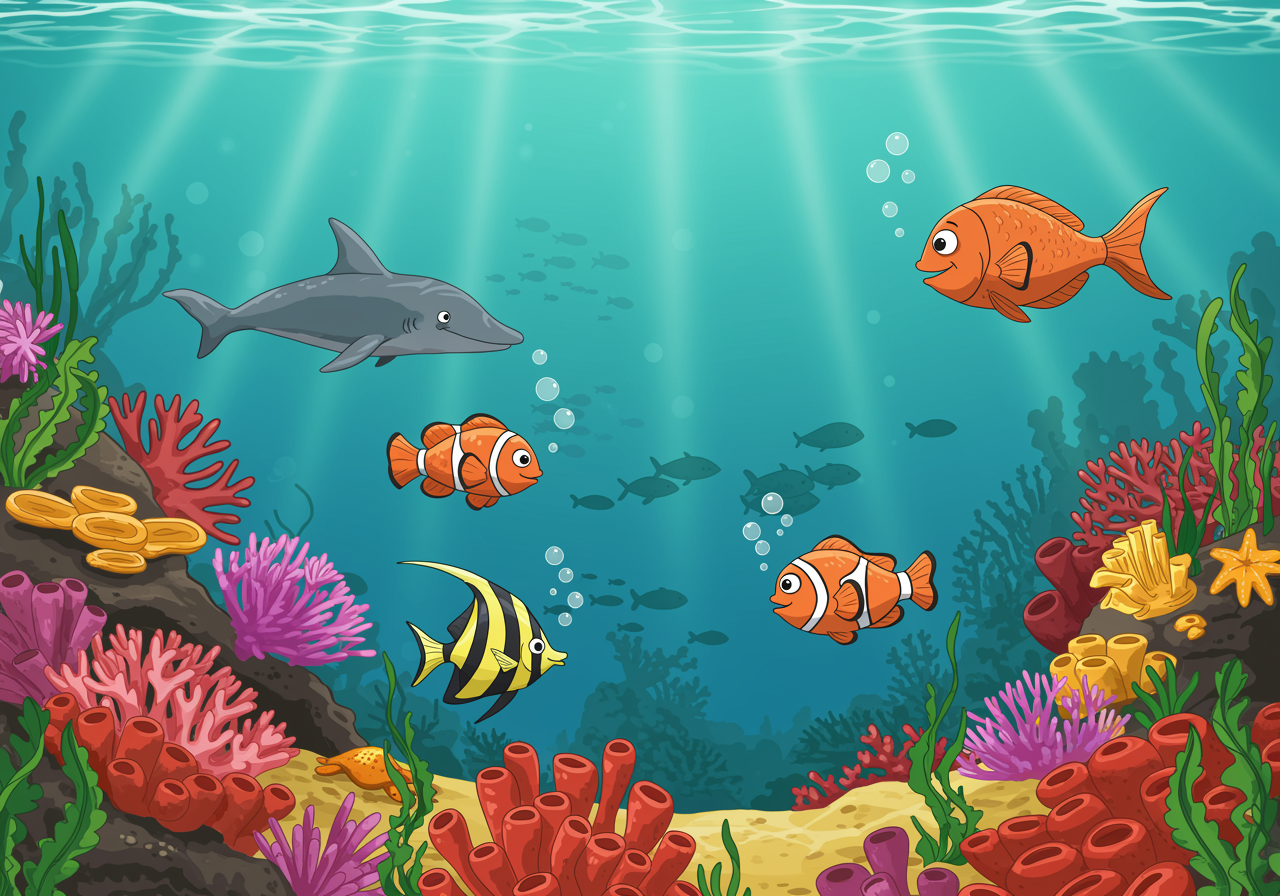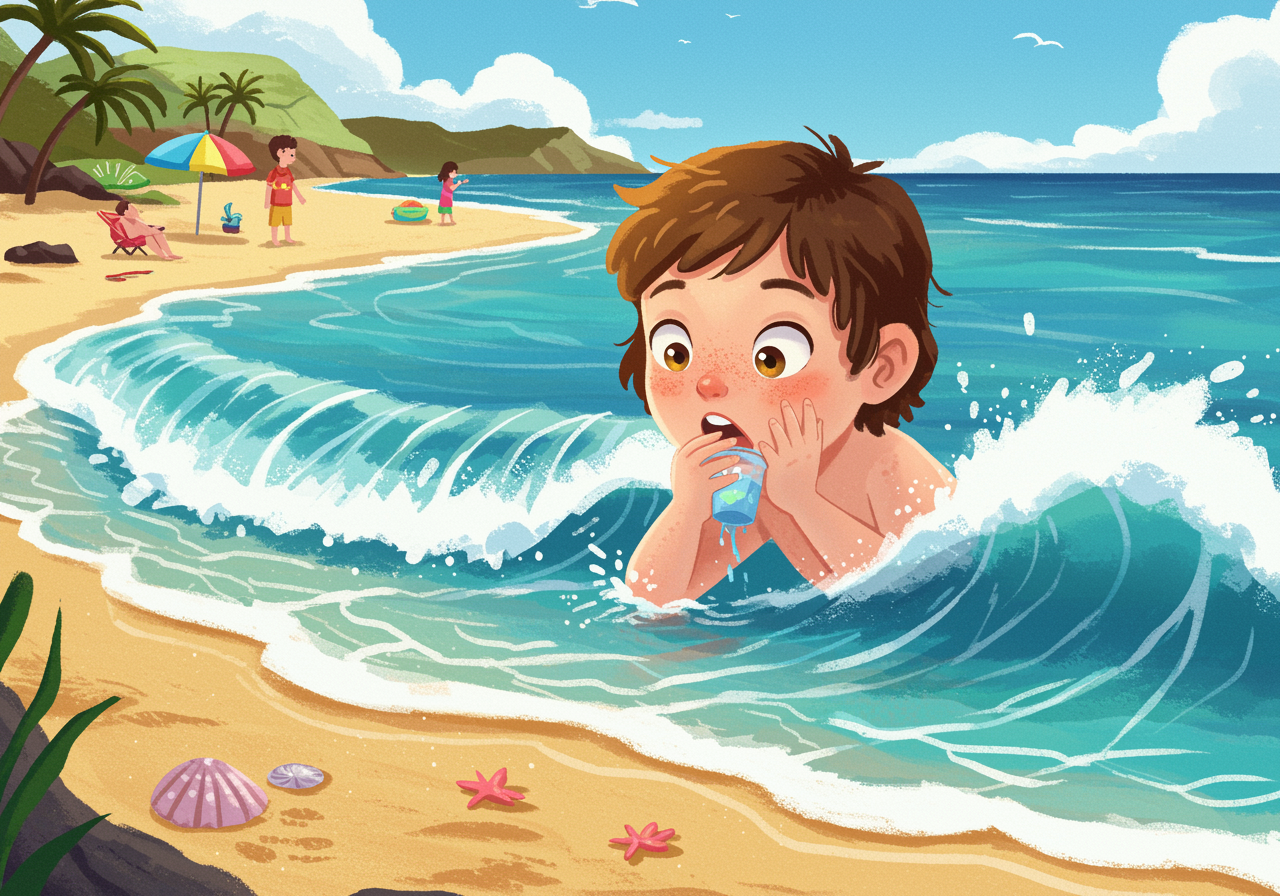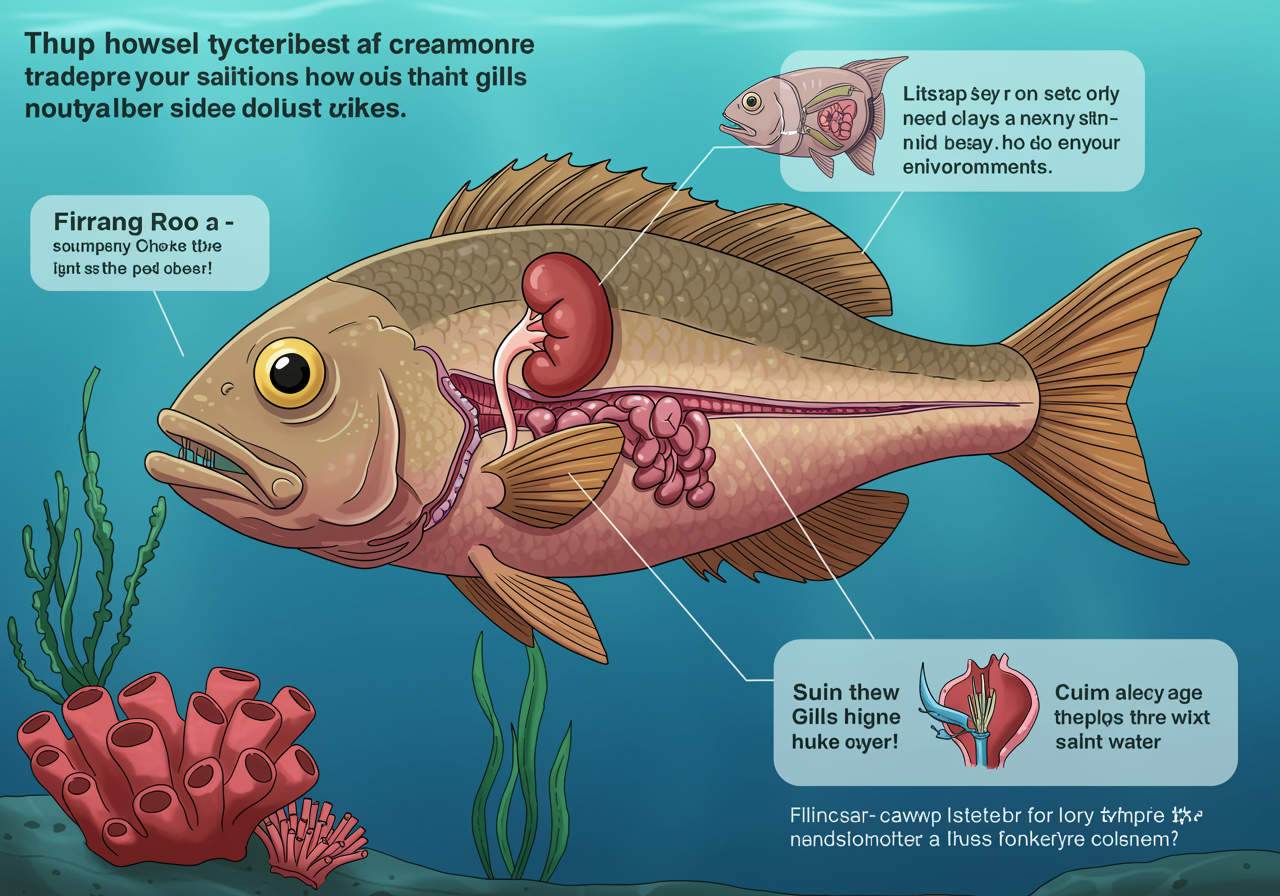Ocean’s Salty Secret: Why the Sea Tastes Like Tears

Discover how millions of years of rock recipes created the perfect ocean soup for sea life
Dive into the amazing story of how our oceans became salty and learn why sea creatures are perfectly designed for their briny world.
Overview
Have you ever wondered why a tiny sip of ocean water makes you want to spit it out immediately? The ocean's saltiness isn't just a random quirk – it's the result of an incredible 4-billion-year recipe that's still cooking today! Understanding why our oceans are salty helps us appreciate the amazing ways sea creatures have adapted to thrive in conditions that would be impossible for us land-dwellers. Plus, it connects to everything from why we sweat when we exercise to how climate change affects ocean currents.

Understand in 30 Seconds
Get up to speed quickly
- Rivers are the Ocean's Delivery Service: For billions of years, rivers have been washing tiny bits of salt and minerals from rocks into the ocean. The water evaporates, but the salt stays behind and builds up.
- Sea Creatures are Salt Experts: Marine animals have special body parts like super-kidneys and salt-filtering gills that help them handle all that saltwater without getting dehydrated.
- Different Oceans, Different Saltiness: The Dead Sea is so salty you can float like a cork, while some parts of the Arctic Ocean are less salty because of melting ice.
- Salt Affects Ocean Movement: Saltier water is heavier and sinks, helping create ocean currents that move heat around our planet and affect weather everywhere.
Real Life Scenario
Situations you can relate to
Imagine you're making the world's biggest, slowest soup. Every day for 4 billion years, you add tiny pinches of salt from rocks all over the world. That's exactly what's happening to our oceans! When rain falls on mountains and rocks, it picks up microscopic bits of salt and minerals, like how water dissolves salt when you're cooking pasta. Rivers carry this 'rock soup' to the ocean, where the sun evaporates the water but leaves the salt behind. It's like leaving a pot of salted water on the stove – the water disappears, but the salt crystals remain. Now think about this: if you drank ocean water, you'd get super thirsty because your body would need fresh water to process all that salt. But a dolphin can drink seawater all day and feel great! How do you think they do it?

Role Play
Spark a conversation with “what if” scenarios
What if you were a fish that accidentally swam from a freshwater lake into the salty ocean?
- Role play: Act out how your 'fish body' would react – pretend your cells are shrinking because the salt is pulling water out of them, then brainstorm what special body parts you'd need to survive.
What if you were a raindrop starting your journey on a mountain and ending up in the ocean?
- Role play: Tell the story of your journey, picking up salt from rocks, joining a river, and finally reaching the sea. Act out meeting other 'raindrop friends' who brought different minerals.
What if you were a whale that needed to drink water but only had access to the salty ocean?
- Role play: Demonstrate how you'd use your special whale kidneys to filter out salt, and show how you'd get fresh water from the fish you eat.
FAQs
Frequently asked questions people want to know
Will the ocean keep getting saltier forever?
Not really! The ocean reaches a balance where salt also gets removed through things like sea spray, salt deposits on land, and being trapped in underwater rocks.
Why don't fish get thirsty like we do?
Fish have amazing kidneys and gills that work like super-filters, removing salt from their bodies and keeping just the water they need.
Could humans evolve to drink saltwater someday?
Probably not! Our kidneys aren't powerful enough to handle that much salt. We'd need completely different body systems, like many sea animals have.
Examples in the Wild
See how this works day to day
- Sea turtles have special salt glands near their eyes that work like built-in desalination plants, removing excess salt from their blood (National Geographic Ocean Research)
- The Dead Sea is 10 times saltier than normal ocean water, making it impossible for most fish to survive but creating perfect conditions for unique bacteria (Smithsonian Ocean Portal)
- Emperor penguins can drink seawater because they have super-efficient kidneys and special glands that filter out salt (Antarctic Research Program)
- Scientists discovered that climate change is making some parts of the ocean saltier and others less salty, affecting ocean currents worldwide (NASA Ocean Studies)
In Summary
What you should know before you start
- Ocean salt comes from billions of years of rivers washing minerals from rocks into the sea
- Marine animals have amazing body adaptations like special kidneys and salt glands to handle saltwater
- Different parts of the ocean have different salt levels, affecting what can live there
- Ocean saltiness helps create currents that affect weather and climate around the world
Pro-tip for Parents
You got this!
If your child asks 'But why can't we just remove the salt from ocean water?' – this is a perfect opportunity to explore desalination technology! You can do a simple experiment at home by boiling saltwater and collecting the steam (which becomes fresh water) while leaving salt crystals behind. This connects the science to real-world solutions and shows how humans are learning from nature's examples.

Keep an Eye Out For
Find these examples in everyday life
- News about ocean currents changing due to climate change – great for discussing how salt affects water movement
- Documentaries about deep-sea creatures and their amazing adaptations to high-pressure, salty environments
- Local aquarium visits to observe how saltwater and freshwater fish are kept in different tanks
Explore Beyond
Look up these related research topics
- How do ocean currents work and why do they matter for climate?
- What amazing adaptations do deep-sea creatures have for extreme environments?
- How are humans working to clean up ocean pollution while protecting marine ecosystems?